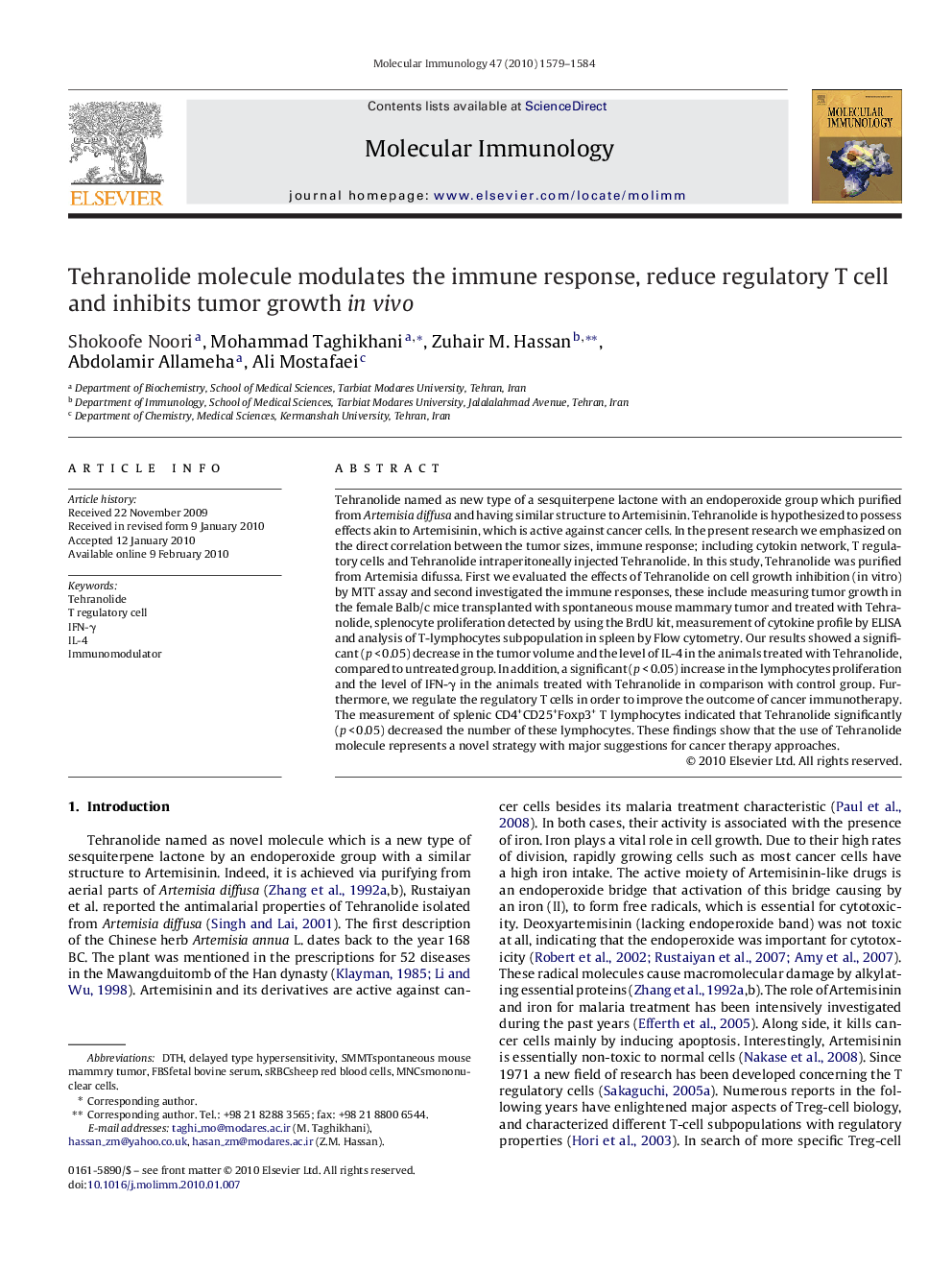| Article ID | Journal | Published Year | Pages | File Type |
|---|---|---|---|---|
| 2831744 | Molecular Immunology | 2010 | 6 Pages |
Tehranolide named as new type of a sesquiterpene lactone with an endoperoxide group which purified from Artemisia diffusa and having similar structure to Artemisinin. Tehranolide is hypothesized to possess effects akin to Artemisinin, which is active against cancer cells. In the present research we emphasized on the direct correlation between the tumor sizes, immune response; including cytokin network, T regulatory cells and Tehranolide intraperitoneally injected Tehranolide. In this study, Tehranolide was purified from Artemisia difussa. First we evaluated the effects of Tehranolide on cell growth inhibition (in vitro) by MTT assay and second investigated the immune responses, these include measuring tumor growth in the female Balb/c mice transplanted with spontaneous mouse mammary tumor and treated with Tehranolide, splenocyte proliferation detected by using the BrdU kit, measurement of cytokine profile by ELISA and analysis of T-lymphocytes subpopulation in spleen by Flow cytometry. Our results showed a significant (p < 0.05) decrease in the tumor volume and the level of IL-4 in the animals treated with Tehranolide, compared to untreated group. In addition, a significant (p < 0.05) increase in the lymphocytes proliferation and the level of IFN-γ in the animals treated with Tehranolide in comparison with control group. Furthermore, we regulate the regulatory T cells in order to improve the outcome of cancer immunotherapy. The measurement of splenic CD4+CD25+Foxp3+ T lymphocytes indicated that Tehranolide significantly (p < 0.05) decreased the number of these lymphocytes. These findings show that the use of Tehranolide molecule represents a novel strategy with major suggestions for cancer therapy approaches.
